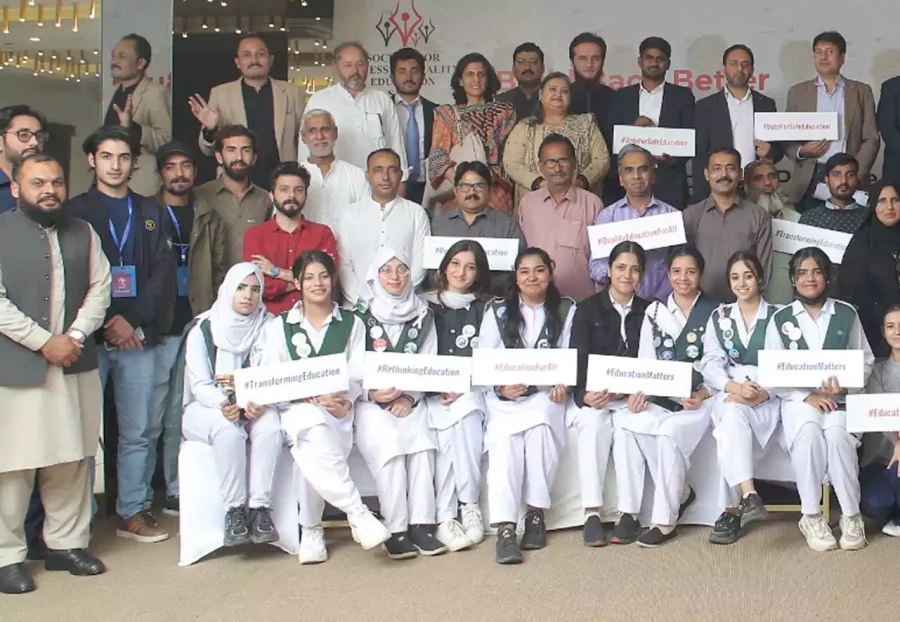Zubair Qureshi
With the highest number of out-of-school children in the world, Pakistan can no longer remain indifferent to the education for youth and it is high time an education emergency should be declared in the country.
Civil society organizations’ representatives, youth groups and senior members of the academia expressed these views on the occasion of the 14th Annual Convention held by the Pakistan Coalition for Education, an initiative of the Society for Access to Quality Education (SAQE) at the launch of the “Charter of Education.”
“With an estimated 25 to 28 million children currently out of school in Pakistan, we, as a nation no longer have the luxury to treat education with indifference and neglect that consequent governments have meted out in the past,” said ZehraArshad, Executive Director of SAQE and the National Coordinator of PCE.
“The political parties must come together to ensure a strong consensus on a common agenda for access to equitable education for all across Pakistan,” she said. The “Charter of Education” developed under the slogan of “Vote for Safe Education,” urged the political parties to develop a joint Charter of Education at their ends on the same lines as they had developed the Charter of Democracy.
Such a Charter should uphold the promise and enactment of Article 25-A and SDG-4 agenda for equitable education for all children. “The three key issues plaguing Pakistan’s education system right now include a colossally high number of out-of-school children, an underutilized youth bulge and alarmingly high learning poverty,” pointed out Dr. Muhammad Jehangir Khan, Associate Professor at PIDE.
The political parties should also provide tangible pledges in their manifestoes with short, medium and long-term plans to improve the access and quality of education, especially for traditionally marginalized groups such as girls, children with disabilities, ethnic and religious minorities and transgender students. “Owing to limited opportunities, bullying and harassment, the literacy rate among transgender people in Pakistan is merely 19%,” shared Nayab Ali, a transgender rights activist and the Executive Director of Transgender Rights Consultants Pakistan. Adding to this, ItefaqKhaliq Khan, Senior Program Manager at Sightsavers shared, “More than 90% of all children living with disabilities in Pakistan have no access to education.”
The participants also called for immediate measures to divert sufficient disaster aid towards education as well as providing conditional cash transfers to the affected households to facilitate the education of their children. “This will only be possible by enhancing public investment in education and mobilising the collective strength of multiple stakeholders to build back better,” said RahatRizwan, education Coordinator at IRC UK. Apart from the Ministry and Departments of Education, the other ministries, such as the Ministry of Climate Change should also be onboarded to create an education system that is truly shock resilient. Similarly, donors and other bilateral international actors must also join this effort to ensure that it is sufficiently supplemented through technical and financial support.
The Charter also demanded making educational institutes safe. “Existing laws should be implemented to protect students from all forms of harm, including sexual violence at the hands of their peers and those in positions of power in their institutes. Those found guilty should be strongly apprehended,” the Charter reads.










